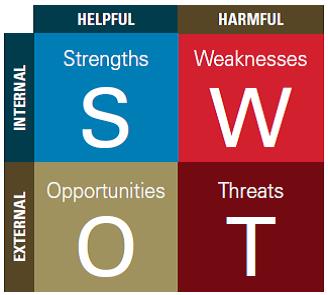
Usually, when you’re trying to take a cold, hard look at your future, it’s best to do it with fresh eyes.
That, according to Greg Ervin, is partly why Marion-based Timberline Manufacturing Co. has been working with CIRAS to plan the company’s best path to growth. Timberline, a maker of wire harnesses, control panels, and custom electronics that is now in its fifth year as an employee-owned business, approached CIRAS roughly a year ago seeking help with mapping the next portion of its future.
The company could have done that soul-searching itself, said Ervin, Timberline’s director of sales. But new perspectives are valuable.
“The benefit of having someone from the outside is he or she can ask stupid questions or questions that would be sensitive to ask if you’re on the inside,” Ervin said. “It challenges you to handle situations that maybe otherwise would just be taken for granted or accepted internally. An outsider doesn’t have to live with the day-to-day consequences of the question or the answer.”
CIRAS account manager Glenn Volkman believes any strategic planning process should start with a lot of in-depth questions. Volkman recommends a formal SWOT analysis to map out the business’s strengths, weaknesses, opportunities, and threats. What’s learned during that process sometimes can prevent unnecessary headaches for businesses that aren’t yet ready to do what needs to be done.
 “Not every company is ready to do strategic planning,” Volkman said. “The SWOT will help bring that out. . . . Almost every company has some barrier to change, and that needs to be addressed before they can implement any kind of plan.”
“Not every company is ready to do strategic planning,” Volkman said. “The SWOT will help bring that out. . . . Almost every company has some barrier to change, and that needs to be addressed before they can implement any kind of plan.”
CIRAS project manager Joy Donald said strategy coaches help provide focus. “Usually, a company has a hard time looking at themselves honestly without an external person coming in and guiding them through that process,” she said.
Selina Schumacher, general manager of Schumacher Company in Durant, agrees.
“It takes time to use SWOT analysis, and usually, managers have no time for that,” she said. “But if there is someone from outside, in this case CIRAS, . . . it makes it a lot easier.”
Also, more efficient.
“Companies never have enough time or money to address all the things that are included in a SWOT analysis,” Donald said. “So my purpose is to prioritize the time and investment involved in all the things tied to that assessment.”
Donald estimated that roughly 30 percent of the moderate-sized manufacturers most likely to work with CIRAS “have robust strategic planning.” The rest “are getting at it one way or another, but there’s not a comprehensive approach.”
“I think a lot of them just don’t have time to think about ROI,” Donald said. “They’re just too busy doing what is in front of them.” Focus is mandatory for implementation to amount to anything, agrees Timberline’s Ervin.
“Just talking about it at the beginning of the year and coming up with a grandiose plan is one thing,” Ervin said. “None of it matters if we don’t do anything.”
> For more information about SWOT analysis and strategic planning, contact Joy Donald at jdonald@iastate.edu or 319-359-0206.
A version of this article was published in the Summer 2017 edition of CIRAS News. To read more of that edition or others, please explore elsewhere on our website.